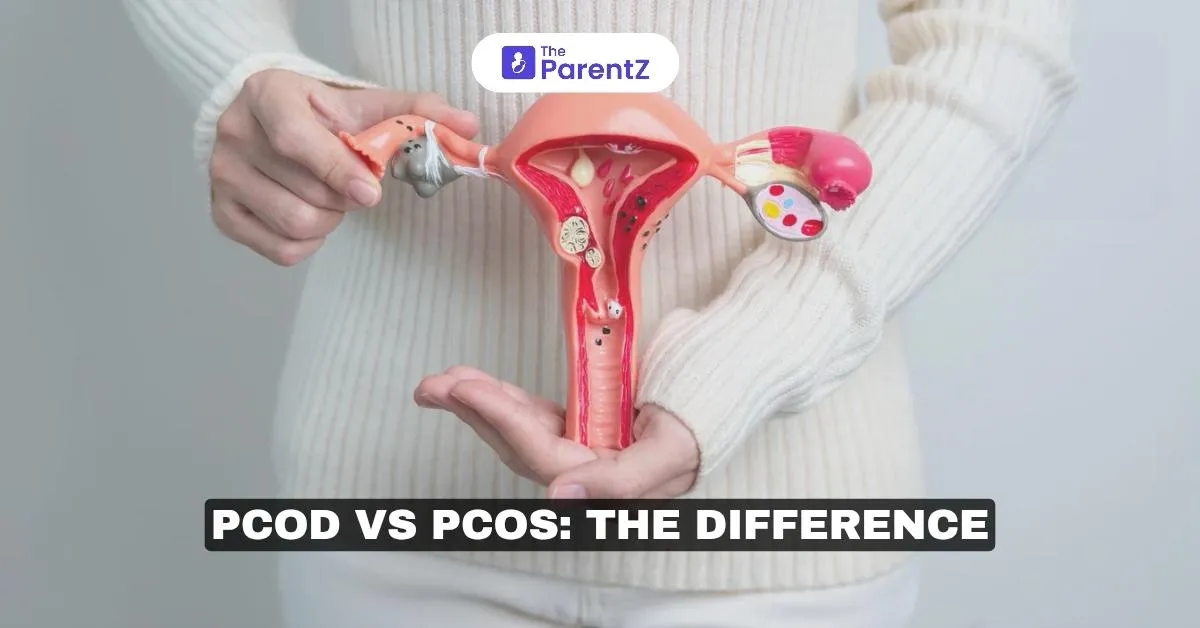At some point, you must have come across terms like PCOD (Polycystic Ovarian Disease) and PCOS (Polycystic Ovarian Syndrome). The truth is— that both conditions share similarities. Both conditions affect the ovaries, cause hormonal imbalances, and lead to irregular periods and fertility issues in women.
However, PCOD and PCOS are not the same. And the key difference lies in their severity and the impact on women’s bodies.
Read below this article to explore the difference between PCOD and PCOS and what you should know about it.
What is PCOD?
Polycystic Ovarian Disease (PCOD) is a condition when the ovaries produce more immature eggs than usual. Over time, these eggs turn into cysts, thus resulting in hormonal imbalances and irregular menstrual cycles.
PCOD is a quite common condition and affects around 10-15 percent of women of reproductive age.
The primary causes behind PCOD are poor eating habits, stress, obesity, and a poor lifestyle.
The common symptoms of PCOD in women are
- Irregular periods
- Mild weight gain
- Acne and oily skin
- Hair thinning
- Occasional fertility issues
Since PCOD is usually caused due to poor lifestyle, and can easily be managed by regular exercise that may helps regulate hormone and also reduce weight gain. Besides including a balanced diet in your daily routine and avoiding processed food, sugar, and excess carbs.
Moreover, yoga, meditation, and deep breathing exercises can also significantly help regulate hormones naturally.
What is PCOS?
Polycystic Ovarian Syndrome (PCOS) is typically a more severe condition that involves hormonal, metabolic, and reproductive disruptions. This condition not just the ovaries but also the entire endocrine system, thereby resulting in insulin resistance, obesity, and increased male hormones. PCOS affects nearly 4-20 percent of women of reproductive age and is considered one of the leading causes of infertility.
The exact cause however is yet unknown, the potential causes may include genetics, insulin resistance, and hormonal imbalances.
The common symptoms of PCOS include:
- Irregular or absent periods often months apart
- Excessive hair growth on the face, chest, or back
- Severe acne and oily skin
- Sudden and excessive weight gain especially around the abdomen
- Insulin resistance and increased risk of Type 2 diabetes
- Higher risk of heart disease and metabolic disorders
Since PCOS is more severe, the condition is usually managed by medications including
birth control pills to regulate periods, metformin for insulin resistance, and hormonal therapy.
Besides, weight management and specialized diet plans, particularly Low-carb, high-protein diets can significantly help manage PCOS symptoms.
PCOD vs. PCOS: The Differences
| Aspect | PCOD (Polycystic Ovarian Disease) | PCOS (Polycystic Ovarian Syndrome) |
| Nature | A hormonal imbalance where ovaries produce immature eggs, leading to cyst formation. | A severe endocrine disorder that affects metabolism, hormones, and ovulation. |
| Cause | Primarily due to poor lifestyle choices, including diet and stress. | Insulin resistance and genetics may be linked with it. |
| Impact on Fertility | Women with PCOD can still ovulate and conceive. | Women with PCOS may struggle with ovulation and infertility. |
| Symptoms | Irregular periods, mild weight gain, acne, and hair fall. | Irregular or absent periods, excessive weight gain, severe acne, excessive hair growth, and insulin resistance. |
Long-Term Health Risks
When it comes to long term health risks of both the conditions, here are the key differences between PCOD and PCOS.
| Health Risk | PCOD | PCOS |
| Fertility Issues | Mild | Severe |
| Risk of Type 2 Diabetes | Low | High |
| Heart Disease | Low | High |
| Obesity | Mild to moderate | Severe |
| Mental Health Issues | Less common | More common (anxiety, depression) |
Conclusion
PCOD and PCOS share similarities, however, PCOS is a more serious condition compared to PCOD.
If you too have been experiencing irregular periods, weight gain, or hormonal imbalances, it is recommended to consult a doctor early.





Be the first one to comment on this story.